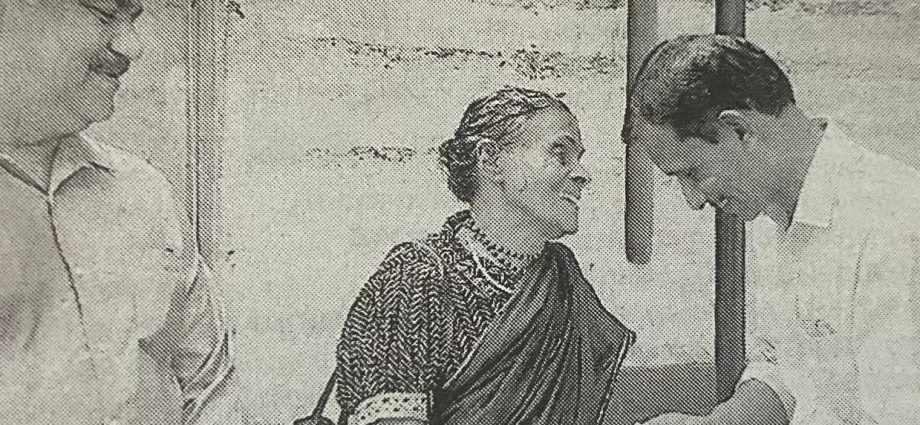By Matters India Reporter
Aluva, Jan 26, 2025: A court in Kerala has dropped a case against a bus conductor for illtreating Daya Bai, a renowned social activist and tribal rights promoter.
The court in Aluva on January 24 stopped the proceedings against Shylan after Daya Bai, who travelled from the central Indian state of Madhya Pradesh, and told the court her decision to pardon him.
Shylan, who worked as a bus conductor with the Kerala State Road Transport Corporation, is scheduled to retire from service in February.
After pardoning him, Daya Bai advised Shylan to treat all humans equally and to not discriminate against people on the basis of their dress or looks.
The 83-year-old activist was traveling to Aluva in a bus late in the evening of December 20, 2015, after attending a function in Trichur. As it was dark, she reportedly asked the driver whether the bus was nearing Aluva bus stand. She repeated the question to the conductor.
Enraged, the conductor abused her and asked to get down far from the bus stand. Shylan mistook her to be a beggar woman as the social worker dresses like an Adivasi woman.
As Daya Bai sat on the road in anguish, people asked her why she had got down there. She narrated her ordeal to them. Someone uploaded her experience in Facebook and other social media groups triggering a public outcry.
Kerala Transport Minister Radhakrishnan Thiruvnachoor and KSRTC Chief Managing Director Antony Chacko suspended both the conductor and the driver Yousuf and publicly apologized for the incident.
Daya Bai was in Thrissur to receive the Father Vadakkan memorial award. She then went to Pavaratty school to take classes for student police cadets. After the class, two policemen helped her to board the KSRTC bus to Aluva.
Although not booked in the case, Yousuf, the driver who had retired from the service, came to the court to meet Daya Bai and seek her blessings, reported Malayala Manorama daily.
Daya Bai has worked for the socioeconomic advancement of tribals in central India. She currently lives at Barul village of Chhindwara district in Madhya Pradesh.
Born Mercy Mathew at Poovarani near Pala in Kerala in 1940, she left home at the age of 16 to become a nun. She left the convent later as she found its rules too restrictive to fulfill her desire to help the poor for which she had left her home.
She adopted the Adivasi style of life as part of her cultural immersion into the world of indigenous people of India.
Her speeches on social justice have inspired thousands to come forward to help the poor. She conducts protests and campaigns to press local authorities to open schools in remote villages to help improve the lives of tribal people.
She was associated with Narmada Bachao Andolan (save Narmada struggle) and the Chengara agitation, apart from her solo struggles representing the forest dwellers and villagers in Bihar, Haryana, Madhya Pradesh, Maharashtra and West Bengal.
Daya Bai, who practices the theology of liberation, had served the Bangladeshis refugees during the 1971 war.
In 2022, she undertook a hunger strike in front of the Kerala Secretariat to demand justice for the victims of endosulfan pesticide in Kasargod district.
Daya Bai received the Woman of the Year Award from Vanitha, the largest circulated woman magazine in India, in 2007. She was awarded with the Good Samaritan National Award (instituted by the Kottayam Social Service Society and Agape Movement, Chicago) in January 2012.
Ottayal or ‘One Woman-Alone,’ is an hour-long documentary on her by Shiny Jacob Benjamin.
Nandita Das, a film actor and activist, wrote a tribute to Daya Bai in 2005, as the one inspiration of her life.













People like Dayabai are a beacon of hope and light midst the gathering gloom and doom of communal hatred and selfishness.
Great story.